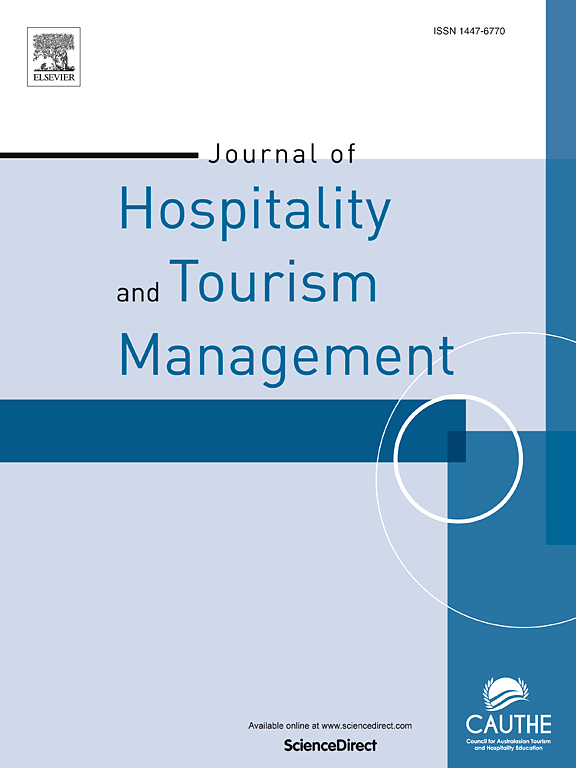可持续发展信息超载:对消费者洗绿认知、感知价值和行为意图的影响
IF 7.8
1区 管理学
Q1 HOSPITALITY, LEISURE, SPORT & TOURISM
引用次数: 0
摘要
关于可持续性信息过载感知对消费者对绿色清洗、感知价值和行为意图的感知的影响,以及这种影响如何取决于消费者对可持续性实践的期望,我们知之甚少。为了解决信息过载的影响,我们将刺激-有机体-反应(S-O-R)模型与媒体丰富度理论和期望-确认理论相结合。一项在线调查测量了808名英国和德国游客对酒店可持续性实践的期望,并向他们展示了可持续性记分卡。研究结果表明,感知信息过载增加了感知的“漂绿”,并(通过“漂绿”)对道德表达和利他价值观产生负面影响。这对酒店经理来说是一个挑战,因为感知价值会积极影响自我报告的预订意向和电子口碑(eom)推荐。此外,顾客对可持续发展实践的期望调节了i)信息超载与“漂绿”之间的正相关关系,以及ii)“漂绿”与感知价值之间的关系。客户对可持续性实践的更高期望加强了感知信息过载对感知绿色洗涤的影响。然而,出乎意料的是,对可持续发展实践的更高期望削弱了感知到的绿色洗涤对道德表达和利他价值观的影响,这表明具有高可持续发展期望的客户可能比其他人更能容忍一定量的绿色洗涤。本文章由计算机程序翻译,如有差异,请以英文原文为准。

Sustainability information overload: Its effect on customers’ greenwashing perceptions, perceived value, and behavioral intentions
Little is known about the effect of perceived sustainability information overload on customers' perceptions of greenwashing, perceived value, and behavioral intentions, nor how this effect is contingent on the customers' expectations of sustainability practices. To address the impact of information overload, we integrate the Stimuli-Organism-Response (S-O-R) model with the media richness theory, and the expectation-confirmation theory. An online survey measured 808 British and German travelers' expectations of hotels’ sustainability practices and exposed them to a sustainability scorecard. The results show that perceived information overload increases perceived greenwashing and has a negative impact (via greenwashing) on ethical-expressive and altruistic values. This is a challenge for hotel managers, as perceived value positively affects self-reported booking intentions and electronic Word of Mouth (eWOM) recommendations. Furthermore, customer expectations of sustainability practices moderate i) the positive relationship between information overload and greenwashing, and ii) the relationship between greenwashing and perceived value. Higher customer expectations of sustainability practices strengthen the effect of perceived information overload on perceived greenwashing. However, unexpectedly, the higher expectations of sustainability practices weaken the impact of perceived greenwashing on ethical-expressive and altruistic values, suggesting that customers with high sustainability expectations may be more forgiving of a certain amount of greenwashing than others.
求助全文
通过发布文献求助,成功后即可免费获取论文全文。
去求助
来源期刊
CiteScore
13.30
自引率
8.40%
发文量
177
审稿时长
45 days
期刊介绍:
Journal Name: Journal of Hospitality and Tourism Management
Affiliation: Official journal of CAUTHE (Council for Australasian Tourism and Hospitality Education Inc.)
Scope:
Broad range of topics including:
Tourism and travel management
Leisure and recreation studies
Emerging field of event management
Content:
Contains both theoretical and applied research papers
Encourages submission of results of collaborative research between academia and industry.

 求助内容:
求助内容: 应助结果提醒方式:
应助结果提醒方式:


